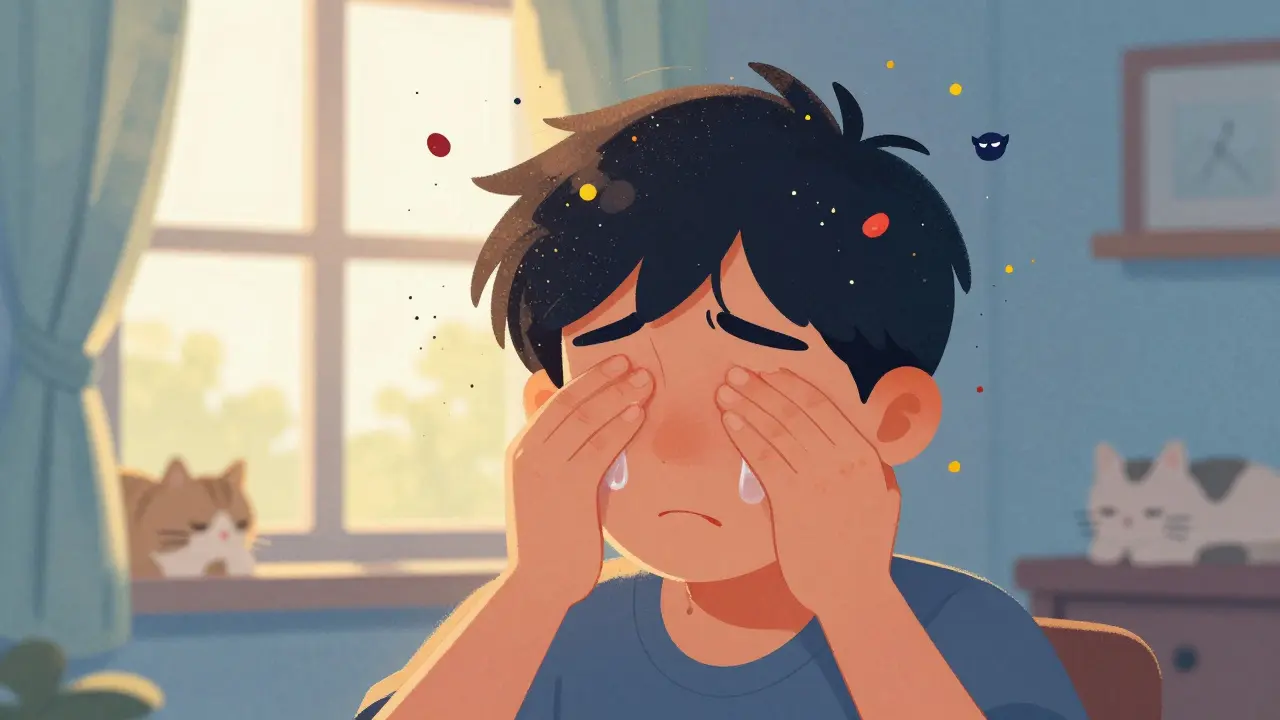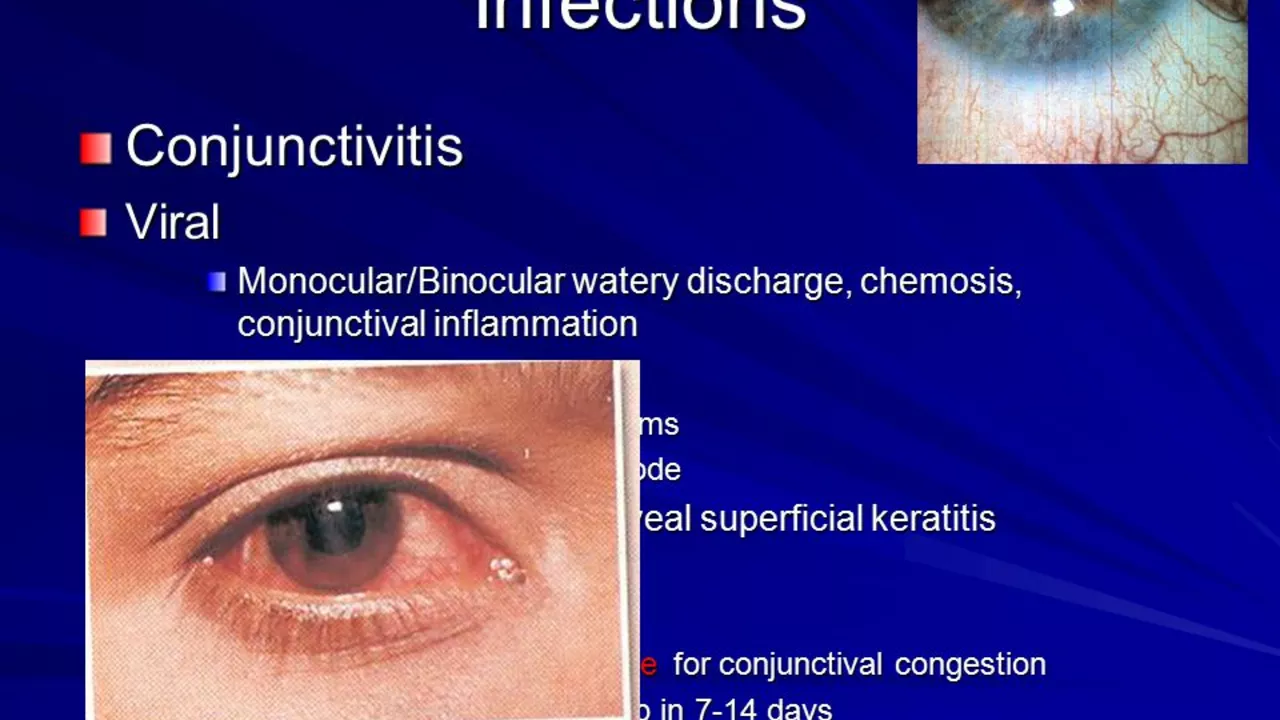Allergic conjunctivitis: what it looks like and how to feel better fast
Red, itchy, watery eyes that flare with pollen or pet dander? That’s allergic conjunctivitis — your eyes reacting to an allergen. It’s common, usually not dangerous, and often goes away with simple care. Below are practical steps to ease symptoms, stop future flares, and know when you need medical help.
Fast at-home relief
Start with easy fixes you can do today. Rinse your eyes gently with clean water or saline to wash out allergens. Apply a cool compress for 5–10 minutes to reduce swelling and itch. Avoid rubbing — it makes inflammation worse and can damage the eye.
Over-the-counter antihistamine eye drops work well for many people. Look for drops with ketotifen or olopatadine; they reduce itch and swelling quickly. Oral non-drowsy antihistamines like cetirizine or loratadine help if you have a lot of nasal allergy symptoms too. If you wear contact lenses, take them out until symptoms clear and switch to glasses for a day or two.
Avoid irritants: keep windows closed on high-pollen days, run an air purifier, bathe pets more often, and change clothes after outdoor exposure. Showering at night helps remove pollen from hair and skin so it doesn’t irritate your eyes while you sleep.
When to see a doctor and long-term control
If redness and pain are severe, vision blurs, or symptoms last more than a few days despite home care, see an eye doctor. You may need prescription drops like stronger antihistamines, mast cell stabilizers, or a short course of steroid drops. Steroid drops can work well but carry risks (raised eye pressure, cataracts) and should only be used under medical supervision.
For ongoing seasonal allergies, an allergist can offer testing and allergy shots (immunotherapy). Immunotherapy can reduce sensitivity to triggers over time and is a good option for people with repeated, severe flares.
If over-the-counter options bother your eyes (stinging, irritation) ask your pharmacist about preservative-free drops or compounded formulations. Compounding pharmacies can prepare preservative-free or tailored eye drops when standard products aren’t suitable, but always confirm safety with your prescriber.
Keep a simple log: note when symptoms start, what you were exposed to, and what helped. That makes it easier for your clinician to spot patterns and choose the best treatment. Remember: itchy, watery eyes that match your allergy season are usually manageable at home. Sudden pain, light sensitivity, or vision changes need prompt medical attention.
Want more practical medication info? Visit CompoundingRxUSA.com for guides on safe eye drops, allergy medicines, and where to ask questions about compounded options and prescriptions.

- 10 Comments
Itchy, red eyes from allergies? Learn how antihistamine eye drops like Pataday and Zaditor work, which ones are best, how to use them correctly, and what to avoid. Get practical, science-backed relief.

- 12 Comments
As a blogger, I've recently been exploring the connection between climate change and allergic conjunctivitis. It's becoming increasingly clear that as global temperatures rise, so does the prevalence of this irritating eye condition. The main reason behind this is the extended pollen season, which exposes more people to allergens for longer periods of time. In addition, higher CO2 levels can cause plants to produce more potent pollen, further exacerbating the problem. This just goes to show that climate change not only threatens our environment, but also has a direct impact on our health.
